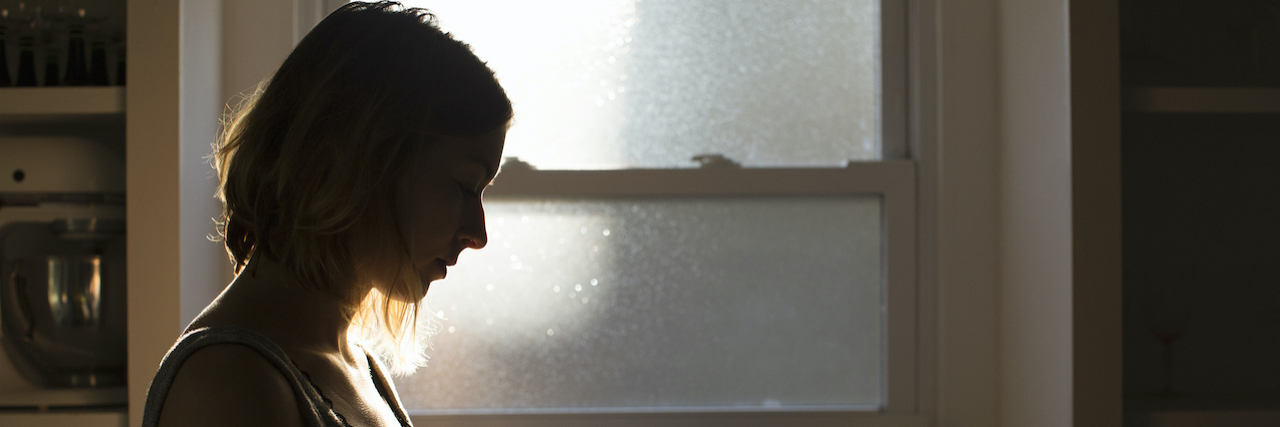I slipped my cell phone into my back pocket and headed down to the cramped washroom in the basement for a little privacy. With shaking hands, I called into my voicemail and listened to the now familiar voice of the nurse: “Your pregnancy test came back negative. I am so sorry. Dr. Weiler would like you to come back on day two of your cycle.” Damn it! All the pent-up energy I had been holding in my body, my tense arms, my tightened chest, immediately released. I felt a tingling sensation in my deflated torso. My eyes welled up, about to brim over. I needed to sit down.
It would have been nice if my husband and I were together to hear the news, but it never worked out that way. I didn’t want to keep him waiting any longer; he was just as anxious to find out the results. As I was sitting on the closed lid of the toilet I dialed his number.
“Hey, babe,” he said.
“It didn’t work,” I blurted out, the sobbing I had been trying to control starting up instantly.
“Crap . . . I am so sorry.” He had nothing to be sorry for, but what else could he possibly have said? I sat there with my elbows on my knees, head down, palm pressed against my throbbing forehead, cell phone next to my ear. Unable to respond.
“It’s going to be OK, babe,” he said. The tears dripped from my eyes onto the green linoleum floor. I wiped my nose with the rough toilet paper.
“But it’s not! It’s not OK.” Month after month I had gotten this exact same call from the nurse saying we weren’t pregnant. It was getting harder to deal with as time went on, as we invested more of our lives, more of our emotional energy, and more of our money into the process. Each month the loss was even greater as our history with infertility grew longer.
“It’s too hard,” I said. I could hear the telephone ringing in the shop upstairs.
“I know, Erin, but we’ll figure this out together, OK?” he encouraged.
“Yup,” I squeaked. My crying slowly subsided and I took a deep breath. “OK, get back to work.”
“Are you sure?” he replied, uncertain whether he should let me go.
“Yup, it’s OK. You need to get back to work.”
“OK. I love you. You’re the best.”
“I love you too,” I replied and hung up the phone. I sat for a while longer on the toilet seat before getting up to look at my tear-stained face in the mirror. Puffy and red. Eventually I made my way back upstairs and tried to focus on my job for the rest of the afternoon. My husband and I would have two days to feel down about yet another failure before we pulled ourselves back together and psyched ourselves up to start the whole process again. Each month was an emotional rollercoaster ride.
With each new round of fertility treatments, I had to reevaluate how I felt about the fact that I was gene positive for Huntington’s disease (HD). I would ask myself if I was still OK with the risk of passing on the gene to our baby. I don’t think my husband thought about it as much as I did. I felt that the responsibility was mine to bear. I still believed it would be my fault if our baby got Huntington’s disease, and my husband continued to reiterate that he didn’t think this was the case.
I would constantly think about the decision I had made to get tested for Huntington’s disease and about my own child having to make that same horrible decision. I knew I would not be able to protect my child from that. I was afraid they would blame me and come to hate me. It was torture having to think about HD all the time when what I really wanted to do was ignore it. It was hard to stay positive when I was constantly thinking about my future with disease and trying to navigate my present with infertility. Especially since I was on a large number of drugs that made me an emotional basket case.
It didn’t help that most people in my life didn’t know what was going on. I felt safe enough to confide in a handful of friends, but I didn’t want to tell our families. I felt defective, and I didn’t want anyone to know there was something else wrong with me. Huntington’s disease and now infertility. This was the second blow to my identity, to my sense of self. I especially dreaded telling my mother-in-law. Why would she want a daughter-in-law who couldn’t provide her with grandchildren? I didn’t want to give her a reason to tell her son I wasn’t good enough for him. This was something I was already feeling, and I was terrified of someone confirming what I believed to be true. Dr. Weiler hadn’t found anything wrong with my husband, so I blamed myself. I blamed my body. But still we continued on.
An excerpt from “All Good Things: A Memoir About Genetic Testing, Infertility and One Woman’s Relentless Search for Happiness“
Getty image by The Good Brigade

